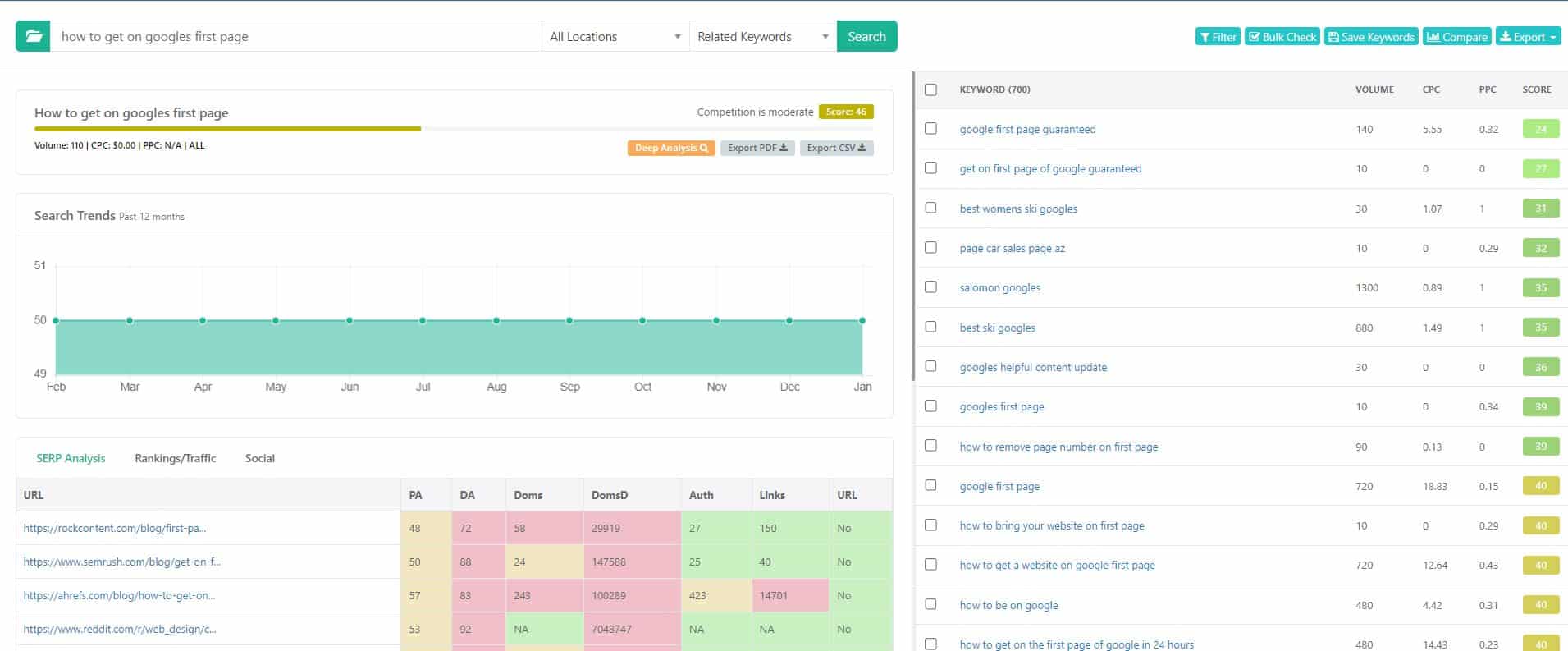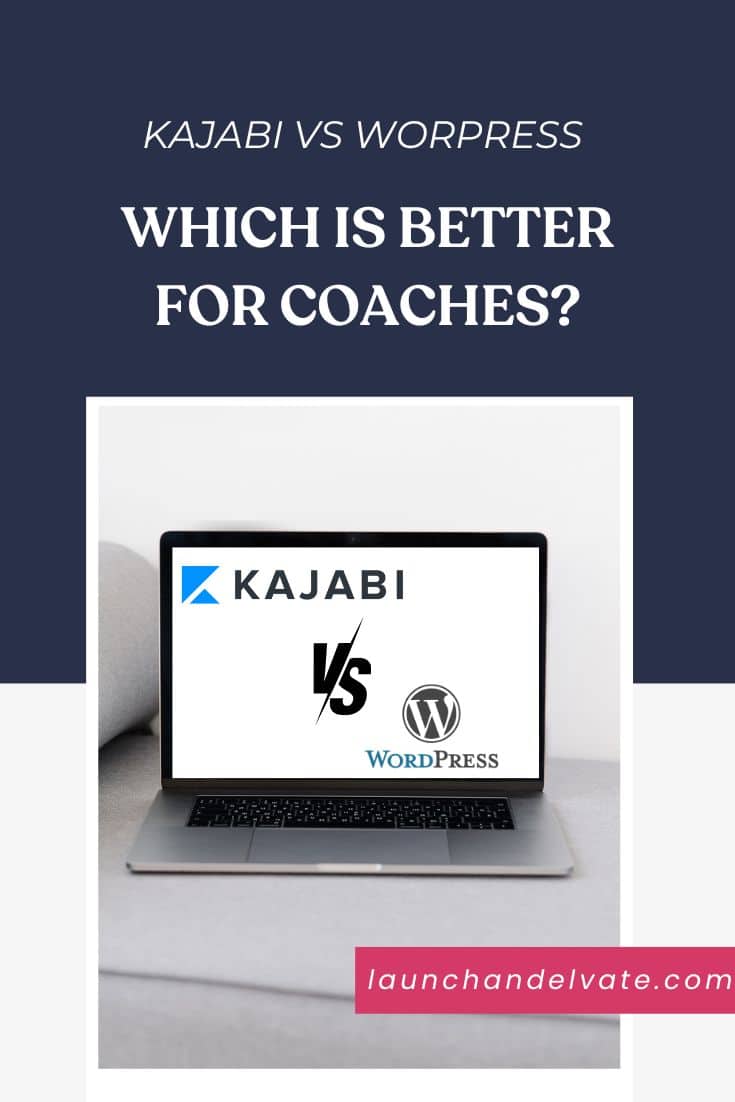In my early days, I made a mistake I see countless coaches stumble upon: over-optimizing my site with the same few keywords, thinking more was better. It was a hard lesson learned, realizing that this tactic actually diluted my efforts, making my pages compete against each other rather than supporting my site’s overall SEO strategy.
In this blog post, I will share 7 common SEO mistakes coaches make, hoping to guide you towards best practices that ensure your online presence flourishes from the get-go.
My aim here is not just to share these insights but to offer actionable tips that can help you, as a coach, avoid these pitfalls and optimize your website effectively. Whether you’re a life coach, business mentor, or specialize in any other coaching niche, mastering SEO is crucial for attracting new leads and making a lasting impact through your online content.
SEO for Coaches: Why is it important?
Your Insta stories, Tweets, your paid ads? They’ve got an expiration date. 😥 But your website? Your blog posts? They’re the evergreen giants in your content forest. They work overtime – attracting, engaging, converting. Why? Because they’re always there, always relevant, and always working for you. In an earlier blog post, I dove deeper and explained what SEO is and why is important for your coaching business.
That’s the magic of SEO, acting as a 24/7 lead generation machine seamlessly matching services with the people who are desperately searching for them. Without spending a dime on ads. ✨
I don’t use social media much. Shocking, I know. 🙊 But guess what? I still get a steady stream of leads. All thanks to organic search.
So, with the undeniable benefits of SEO laid out, let’s look at 7 common SEO mistakes coaches do and how to fix them.
Common SEO mistakes for Coaches:
1. Writing Without Search Intent
Ever caught yourself crafting a blog post that’s a literary work of art but doesn’t quite hit the mark on what your audience is actually searching for? 🤷♀️
Big no-no. ❌
Creating content that resonates is fab. But if it’s not what your audience is searching for, then it’s like throwing a party without sending out the invites.
The fix?
👉 Dive deep into understanding your audience’s needs and questions. Use this insight to guide your content creation, ensuring every piece you publish meets a specific search intent, cutting through the online noise with precision and purpose.
2. Using a keyword too many times within a page
“Let’s sprinkle keywords everywhere; the more, the merrier!” Sounds like a solid strategy, right? 🤔
Not quite! 🤐
This method backfires. It’s called keyword stuffing and basically violates Spam policies for Google web search which leads to the webpage being penalized.
The better approach?
👉Blend your keywords into your content smoothly. It should feel natural, almost invisible. Google favors content that integrates keywords naturally, prioritizing readability and user engagement over sheer keyword volume.
3. Ignoring backlinks
Picture backlinks as the secret handshakes of the internet. They’re nods of approval from one site to another, vouching for your content’s credibility and quality.
Not seeking backlinks means missing out on a key SEO strategy to enhance your site’s authority and search visibility.
Building backlinks is the the most difficult part of SEO. It requires outreach, collaboration, and quality content worth linking to. It’s about guest posting, collaborations, and being so darn useful that the internet can’t ignore you.
But wait, there’s more. 🚀
Not just any backlink will do. You want the right ones from sites that make Google’s heart flutter. That’s right. Quality over quantity, my friends. A single backlink from a high-authority site is worth infinitely more than a dozen from those shady corners of the web.
And here’s a little pro tip: Backlinks to come to you. Be proactive. Reach out to fellow bloggers, influencers, and websites in your niche. Share your content, offer value, and make it impossible for them not to want to link to you.
4. Paying for Backlinks
Just talked about building backlinks, right? Well, buying links is the dark side of that moon. 🌚
Trust me, it’s a shortcut you don’t want to take. 😬
Google can spot a purchased link from miles away and doesn’t appreciate the deceit.
You’re also gambling with your site’s credibility. Authentic backlinks are earned through quality content and genuine relationships, not opened wallets. 💸
5. Not using a keyword tool
Ever tried to hit a bullseye with your eyes closed? That’s what tackling SEO without a keyword tool feels like. 🎯
❌ Big mistake.
Without the right tools, you’re just guessing what your audience wants. And guessing won’t get you far. You need precision, insight, and a clear path forward.
That’s where a stellar SEO tool steps in, turning the lights on and showing you the way.
My go-to tool:
Amidst the sea of tools, Keysearch stands out. It’s my go-to for finding those gold nugget keywords without breaking the bank. Simple, effective, and yes, it even makes SEO a bit more fun with its color-coded results. 🌈

Get Keysearch at $13 per month with promo code KSDISC
6. Duplicating content
Ever just copy-paste content across your site thinking it’ll give SEO a boost?
🚫 Stop right there.
Duplicate content does more harm than good. Google’s smart. It looks for fresh, original content to rank. When it stumbles upon identical or near-identical content across different pages, it throws it for a loop. Which version is the most authoritative? Which should rank higher? Often, the answer is to penalize both by burying them deeper in search results. Not exactly what you were aiming for, right?
Instead, use canonical tags
For unavoidable content similarities, canonical tags are your safeguard, directing search engine focus to your primary content. By marking one version of the content as the “official” or “canonical” page, you’re giving search engines a heads-up on where to direct their attention and link equity. It’s like telling them, “Here, this is the content I want you to notice.”
7. Using the same keyword for multiple pages
Ever used the same keyword across different pages, thinking it’ll multiply your SEO success?
Here’s the twist: it won’t.
This approach leads to what’s known as keyword cannibalization. Essentially, you’re making your pages compete against each other for Google’s attention. Instead of working together to boost your site’s SEO, they’re pulling it in different directions.
👉 The result? Neither page performs as well as it could, diluting your efforts and confusing both search engines and visitors.
To tackle this, ensure each page targets a unique keyword or phrase. This specificity not only clarifies your site’s structure for search engines but also maximizes your reach across different search queries. Remember, diversity in your SEO strategy is just as crucial as its depth.
Final Thoughts:
How many of these SEO mistakes were you familiar with?
More importantly, how many have you managed to avoid? 🤔
Navigating the maze of SEO can be daunting, especially when trying to avoid common mistakes. If you’re feeling overwhelmed or unsure about how to enhance your website’s search engine performance, I’m here to help. Let’s have a 30-min complimentary call to discuss your SEO challenges and pinpoint effective strategies tailored to your coaching business.
Disclosure: Some of the links on this blog post are affiliate links, which means that I may earn a commission if you click on the link or make a purchase using the link. However, please note that all opinions expressed are my own and I only recommend products or services that I genuinely believe in and have personally used.



